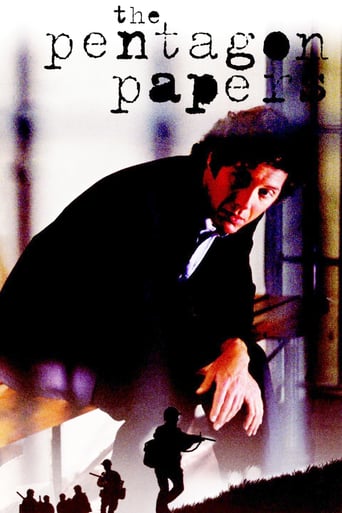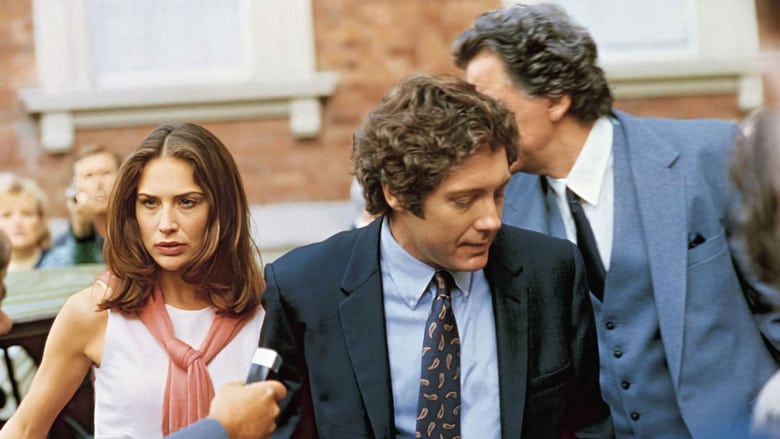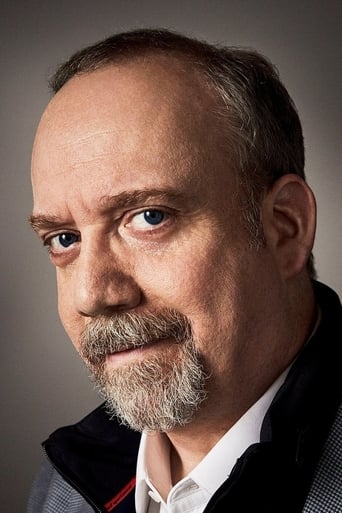

The Pentagon Papers (2003)
This compelling political drama is based on the true story of high-ranking Pentagon official Daniel Ellsberg, who, during the Nixon era, strove to preserve American democracy by leaking top-secret documents to the New York Times and Washington Post. The documents in question would eventually become famous as the Pentagon Papers, which revealed the true reasons for U.S. involvement in Vietnam.
Watch Trailer
Cast


Reviews
Sometimes the people who have the best perspective on a side of an issue are those who were formerly advocating for the other side. Daniel Ellsberg was employed by the Rand Corporation and then the US Executive Branch at the Pentagon as a mid-level researcher. In the 1960's, Ellsberg advocated for the war in Vietnam. He believed that the cause for democracy around the world was worth the sacrifice of the lives of young men in the South Pacific. After a tour of Vietnam and acquisition of federal documents revealing the history of the war, Ellsberg began to question the morality of the US's Vietnam involvement.James Spader offers perhaps his best and most important performance as the young and middle-aged Daniel Ellsberg, the man Nixon referred to as a "traitor". The made-for-TV film chronicles Ellsberg's career as a high-level researcher in international affairs. After finishing his doctorate, Ellsberg first worked for the Rand Corporation and then later the Pentagon. He had been completely sold on America's involvement in Vietnam. He is then sent to Vietnam as a researcher to contribute to the Pentagon's internal study of the war.Upon his return, Ellsberg begins to doubt whether the war in Vietnam is simply a self-perpetuating abattoir with no end in sight, a slaughter-house which keeps feeding upon itself. Were the ends really about spreading the cause of democracy or about some other political ends? Ellsberg sends in his contribution to the study based on his experiences in Vietnam. He then learns that his writing as well as many other researchers were compiled together in a 7000-page internal document chronicling the history of the war in Vietnam.Ellsberg requests from the Pentagona a copy of the internal study, later dubbed the Pentagon Papers by the Press. Ellsberg reads the entire 7000-page monstrosity only to learn that the Vietnam cause goes as far back as Truman, and the ends for Vietnam were not really about the cause of democracy but more about short-term political gains. In other words, no US President wanted to declare Vietnam a failure on their watch, and passed the buck to the next president. Ellsberg is appalled at the disregard for human life for the purposes of political ends. But what can he do about it? A thoroughly engrossing and underrated film about Daniel Ellsberg and the Pentagon Papers. Spader is completely believable as the man regarded as both hero and villain, depending upon the perspective. Nixon and his cronies regarded Ellsberg as a traitor, compromising their goals in Vietnam. They used the old "threat to national security" argument as the reason that the papers should not be released to the public. Others believed that all the information about the war needed to be exposed to encourage healthy debate. How can we, as a supposed democracy, ever make sound judgments on an issue if we are deprived of all the facts?
No one can watch this film without comparing it to "All the President's Men." Allowing for the difference in production values -- this being a television movie -- it still comes in second in all the important respects: direction, writing, photography, and performances.I hate saying that because the story is an extremely important one and it resonates today, what with WikiLeaks and Julian Assange. But the film doesn't really DEAL with those important issues. It's a schematic story of a man with an elite background who started out as a hawk on the Vietnam war, became disillusioned and guilty, turned into a dove, was jailed, and subsequently freed. It's not the story of the war at all, nor of freedom of the press or national security. It's the story of one man's anguish (James Spader) and his courtship of a foxy woman (Claire Forlani) -- and not particularly well told, at that.Some might disagree with that judgment and I wouldn't argue, but compare the opening scenes of "The Pentagon Papers" with the similar opening of "All the President's Men." Both show us a break in.There is no music behind the credits in "President's Men." Instead a lone guard finds an anomaly on a door lock and calls in the police. We see people with flashlights creeping through the Watergate complex in Washington. The only sound is that of an occasional cracked voice over the hand-held radio. The speech is slow and deliberate. "There are people coming -- armed people." Suspense hangs heavy in the air. The plain-clothed police finally corner the trespassers. At gunpoint, they hold up their hands and seem frightened, like mice in a state of tonic immobility. Throughout, the camera hardly moves and each shot last as long as it takes to get the point across.Contrast this with the opening scenes of "The Pentagon Papers". There are hurried footsteps on the wet pavement. A door crashes inward. Men sweep into a dark psychiatrist's office. They smash glasses, push furniture aside brutally. Flashlight beams wave frenziedly. The music booms in the background. The camera wobbles as if drunk. Each shot last a fraction of a second. There isn't time for the viewer to feel any tension. There is no building suspense. We're all overwhelmed by the action on the screen.James Spader is Daniel Ellsberg, the ex Marine, now a researcher at MIT, who steals a Top Secret report in 47 volumes and leaks it to the New York Times when he can't get a politician to publicize it. He's redacted any information that might compromise American lives in Vietname -- troop dispositions and the like -- but has exposed the substance behind the projected perception. Four presidents lied their pants off about Vietnam. But the script has Spader protest too much. He goes around giving speeches, sometimes shouting them.Claire Forlani, with her beauty, dihedral eyes, and sneaky sensuality is a very nice partner for a whistle blower to have. Very comforting and supportive, unlike his wife who complained that he was married to his job. But, then, what is a love affair doing in a movie about the Pentagon papers? Why must we be subjected to the formulaic TV scene of the two lovers snuggling in bed behind the mosquito netting in a rosy romantic light while a thousand one throbbing violins tell us that this is a love scene? We GET it -- even if we don't WANT it.But even if Spader were up to the task -- and for all we know he might be -- and even if Forlani had more to contribute to the story than a pair of appealingly crossed eyes -- the film would suffer heavy damage from the direction and the writing.The camera plays tricks. It wobbles. It changes contrast. It switches from black and white to color. During action scenes or scenes in which someone must face the press corps, it seems to be held in the hands of a spastic person.And who could conquer lines like these? Forlani to Spader, chewing him out: "You're encouraging them to turn more of our boys into cannon fodder." Spader to Forlani: "Oh, so I should just roll over and play dead like Chamberlain at Munich?" (If that's the best Ellsworth could do in a discussion of Vietnam, they should have paid me his salary. I'd have done a better job.) Boys and girls, that reference (Chamberlain, Munich) is to a peace-making attempt on the part of the British Prime Minister just before World War II. Neville Chamberlain agreed to a pact with Hitler and made the mistake of his life when he came home, waved a piece of paper in the air in front of the newsreel cameras, and proclaimed "peace in our time." It was the worst thing he could do. Ever since then, whenever a country has initiated any sort of armed conflict, the cry has been that we will never again "appease the aggressor." I will personally guarantee you, kids, that the next war we get into will be accompanied by rallying cries involving Chamberlain and his scrap of paper. I'd be willing to bet but I have no money.It's disappointing, see, because there really ARE important issues at stake, and the same problems plague us today, yet the movie avoids addressing them except in the most oblique way. Instead, we're supposed to feel happy for Ellsberg's having found the love of his life. Well, at least he did get that. Towards the end, facing the possibility of life in prison, he mutters, "My children will be cursed." He needn't have worried. In all the confusion since then, the name of Ellsberg has been lost to all but historians.
It's a history lesson that many, who did not live through that times, should watch. Like most, I had only a passing understanding of what happened. In fact I listened to those who said Daniel Ellsberg was a traitor, and thought it an acceptable view. Having watched the movie, I now have a better appreciation of the actual story behind the rhetoric. It is a must watch for everybody who thinks history doesn't repeat itself.James Spader is always good in his films. Sometimes the film is not up to snuf, but the subject matter here elevates everything. It could have been improved if they had a little more money for the Vietnam parts of the movie. Paul Giamatti is also good in this. YOU MUST WATCH THIS.
The television had been plaguing me with advertisements for The Pentagon Papers, and my interest in the government and conspiracies and the CIA et cetera had already been piqued, so I decided to watch it.Unfortunately, I wasn't at home when it came on, so I taped it, and when I finally got around to watching it, I was hooked.Excellent movie for anyone who enjoys movies about the government and conspiracies and especially Vietnam.




